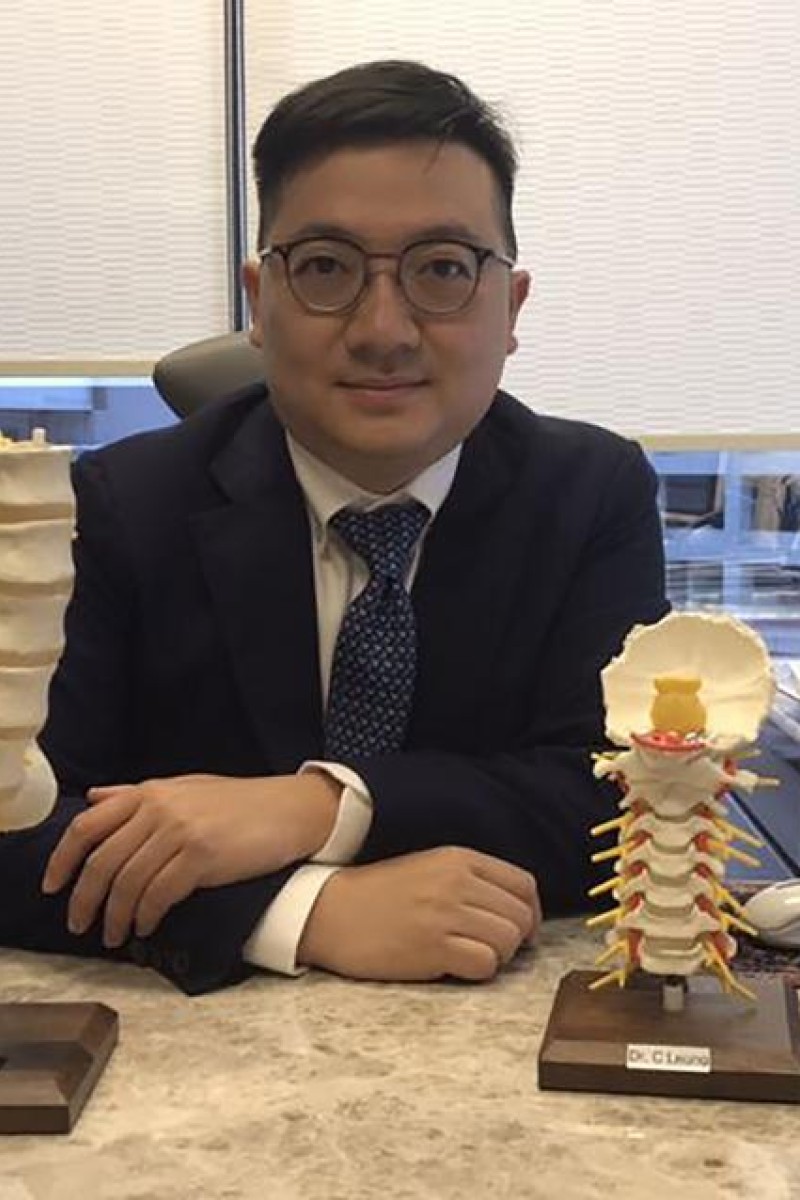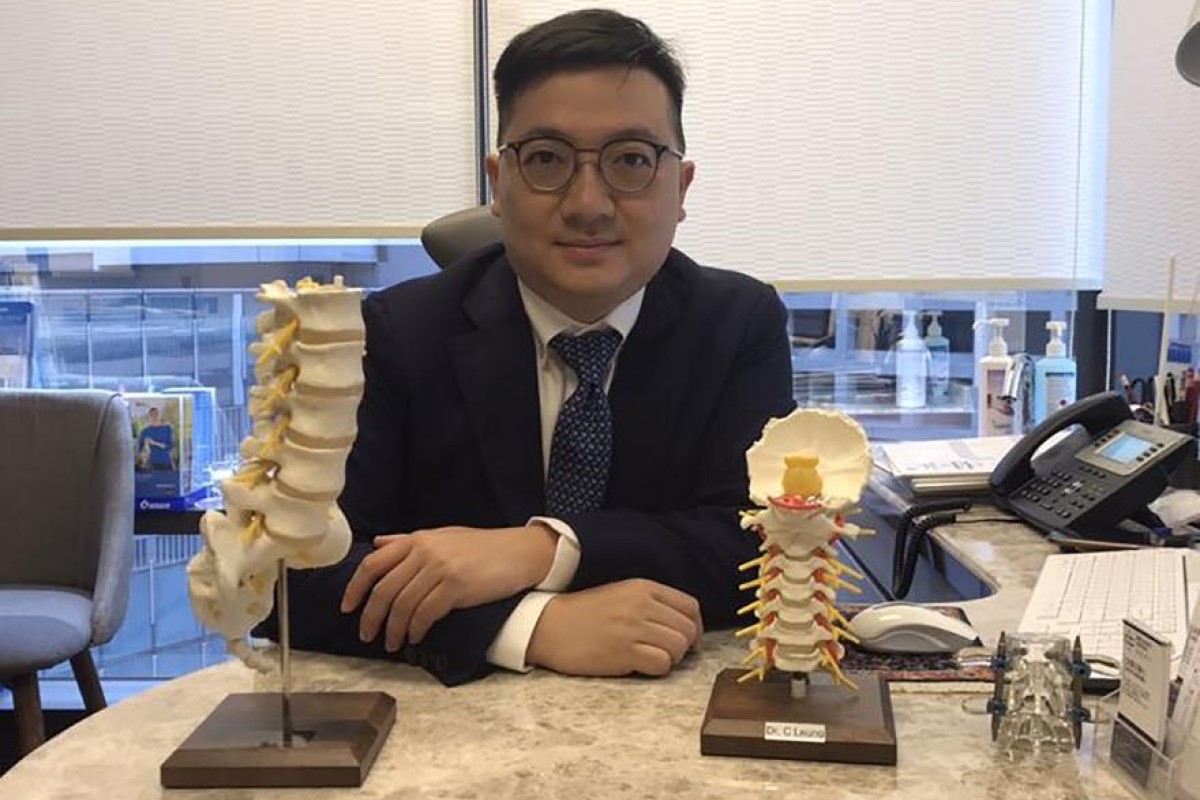
A specialist in neurosurgery explains how our devices affect our bodies and offers his top tips to improve your posture and keep yourself healthy
 Dr Clarence Leung is the clinical director of the Minimally Invasive Spine Surgery Centre and specialist in neurosurgery at Hong Kong Adventist Hospital. He says neck problems in teenagers are on the rise, mostly due to smartphones.
Dr Clarence Leung is the clinical director of the Minimally Invasive Spine Surgery Centre and specialist in neurosurgery at Hong Kong Adventist Hospital. He says neck problems in teenagers are on the rise, mostly due to smartphones.We all know that having bad posture can cause back and neck pain, but what you might not know is it can impact your adult life, too. Young Post spoke to Dr Clarence Leung, a specialist in neurosurgery at Hong Kong Adventist Hospital and clinical director of the Minimally Invasive Spine Surgery Centre to find out why good posture matters.
Leung started his medical career as a neurosurgeon (working on the nervous system), but decided to focus on spine surgery. Most of Leung’s patients are sports enthusiasts with acute lower back problems and office workers with lower back pain, but the doctor says that, with more than 5.8 million smartphones users in the city, there is a rise in young people reporting problems with their neck.
“Before, I would say 70 per cent of my work was on the lower back and 30 per cent on the neck,” he says. “Now, the number of [people I see about] neck problems is rising because of excessive smartphone usage.
“It’s a result of bad posture, as we tend to tilt our heads down and hunch our backs when we look at our phones.”
Our spine, Leung tells us, is supposed to properly bear our weight when it is resting in a neutral position. When we look down at our phones, we push our centre of gravity forward, which forces spinal discs (flat pieces of cartilage between the bones along your back) to shift abnormally.
6 ways to improve your posture for better health
This puts strain on the muscles, which results in neck and shoulder pain. Holding the body in this posture for a long time can eventually even affect other joints along the back, too.
To counter this, our spines sometimes go into “fight mode” and grow extra bones. This can lead to conditions like sciatica (pain that affects the back, hip, and the legs), pain in the arms, pins and needles, and even degenerative disc disease – a condition in which a damaged spinal disc causes back pain. It sounds like something that only affects old people, but it isn’t.
“People at risk of spine problems [range] from those in their early 20s all the way up to those who are 90 or older. In young people, this usually comes in the form of nerve entrapment problems or muscle strain,” says Leung. In serious cases, this might even affect a person’s ability to do something as simple as walking around.
What type of school bag is best for your spine and shoulders?
While this all may sound scary, Leung says there are some easy lifestyle changes you can make to reduce your risk of degenerative disc disease. Start by paying more attention to your posture when you sit and stand.
“Practise standing in a neutral position by leaning back against a wall: your heel, bum, upper back, and the back of your head should touch the wall.”
As for sitting, Leung suggests paying extra attention to your lower and upper back. You should pull your shoulders back, and make sure that both your feet are placed flat on the floor. Your knees should be in line with your hips, and your hips should be pushed far back in the chair. If you’re using a computer, the screen should be at eye level.
“The real key to spine health, though, is good habits and lifestyle. You might have perfect posture, but your muscles will still get strained if you remain sitting for hours every day.”
Leung says you should take short breaks from studying every hour, and move about to stretch out your neck and upper back.
Your phone – which seems like the cause of so many problems – can actually come in handy here, as you can set reminders to take a break and step away from your desk.
“Time can fly by when you’re focused on studying, and that’s when neck and spinal problems arise. We should use technology to remind us when to take a break.”
Edited by Ginny Wong
